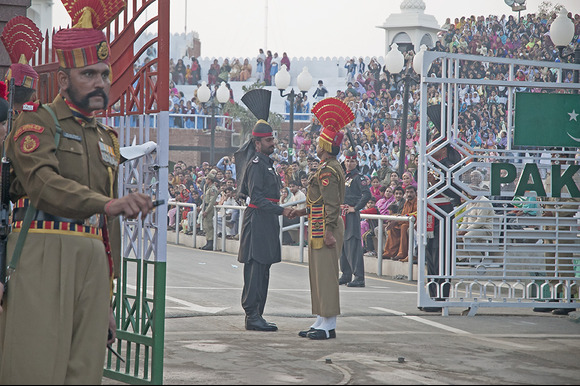US has urged India and Pakistan to take immediate steps to reduce tensions following a deadly militant assault in Indian-administered Kashmir that killed 26 civilians last week. The attack, one of the worst on civilians in the disputed region in over two decades, has sharply increased hostility between the two nuclear-armed neighbors.
U.S. Secretary of State Marco Rubio spoke separately with Indian Foreign Minister S. Jaishankar and Pakistani Prime Minister Shehbaz Sharif on Wednesday. During both calls, Rubio stressed the importance of maintaining regional peace and stability, and expressed condolences for the victims of the 22 April massacre. He also voiced strong support for India’s fight against terrorism, while urging Islamabad to fully cooperate in investigating what he called an “unconscionable attack.”
The killings took place in a scenic meadow near the tourist town of Pahalgam in Jammu and Kashmir. Indian authorities said gunmen opened fire on a group of civilians, with many survivors claiming that Hindu men were deliberately targeted. Indian police later identified three of the four suspected attackers, stating that two were Pakistani nationals and one a local resident. The identity of the fourth suspect remains unknown.
Although no group has claimed responsibility, initial reports linked the assault to the Resistance Front — a group believed to be affiliated with Lashkar-e-Taiba, a Pakistan-based militant organization banned in India. However, the Resistance Front has since denied involvement.
India has directly blamed Pakistan for harboring and supporting the attackers — an allegation Islamabad has strongly rejected. In the wake of the incident, New Delhi has taken a series of retaliatory measures. On Wednesday, India closed its airspace to all Pakistani aircraft, both civilian and military. The move mirrored earlier Pakistani airspace restrictions and is part of a broader breakdown in bilateral ties.
India has also suspended most visas issued to Pakistani citizens and ordered those already in the country to leave within days — a deadline that has now passed. Pakistani media reported that at least 786 nationals have left India in recent days, while 1,465 Indian citizens have returned from Pakistan. Additionally, India has frozen a key water-sharing agreement and banned more than a dozen Pakistani news channels, accusing them of spreading inflammatory content.
In a symbolic but notable move, several Instagram accounts belonging to Pakistani film actors and celebrities have also been blocked in India. The government has not issued an official statement explaining the action.
Pakistan has responded with tit-for-tat measures, including the cancellation of Indian visas and the suspension of the 1972 peace treaty — a framework seen for decades as a diplomatic lifeline between the two countries.
Adding to the tensions, Pakistan’s information minister on Tuesday warned that Islamabad had “credible intelligence” suggesting India might carry out military strikes within 24 to 36 hours. While Delhi has not officially responded to these claims, the possibility of armed conflict remains a serious concern.
In response to the attack, Indian Prime Minister Narendra Modi has held a series of high-level meetings with security and defense officials in Delhi. India’s Cabinet Committee on Security, chaired by Modi, convened twice this week to assess the situation. According to local media citing unnamed sources, Modi has granted the Indian military a “free hand” to decide on the “timing, targets and mode” of any response.
Meanwhile, military tensions continue to simmer along the Line of Control (LoC), the de facto border between the two countries in Kashmir. Indian officials reported multiple ceasefire violations by Pakistani forces over the past few days, prompting a strong protest during a routine military hotline call.
The Kashmir region has been a flashpoint between India and Pakistan since their partition in 1947. While both nations claim the territory in full, each administers parts of it. An armed insurgency against Indian rule has raged in the region since 1989, often resulting in violent clashes and militant attacks.
Prime Minister Modi has vowed retribution for the Pahalgam killings. In a speech following the attack, he declared that those responsible would be “identified, tracked, and punished in a manner beyond their imagination,” underscoring the seriousness with which his government views the situation.
With both countries entrenched in a cycle of accusations and retaliations, the risk of escalation remains high. The international community, led by the U.S., continues to urge restraint to prevent further deterioration of an already volatile relationship.






